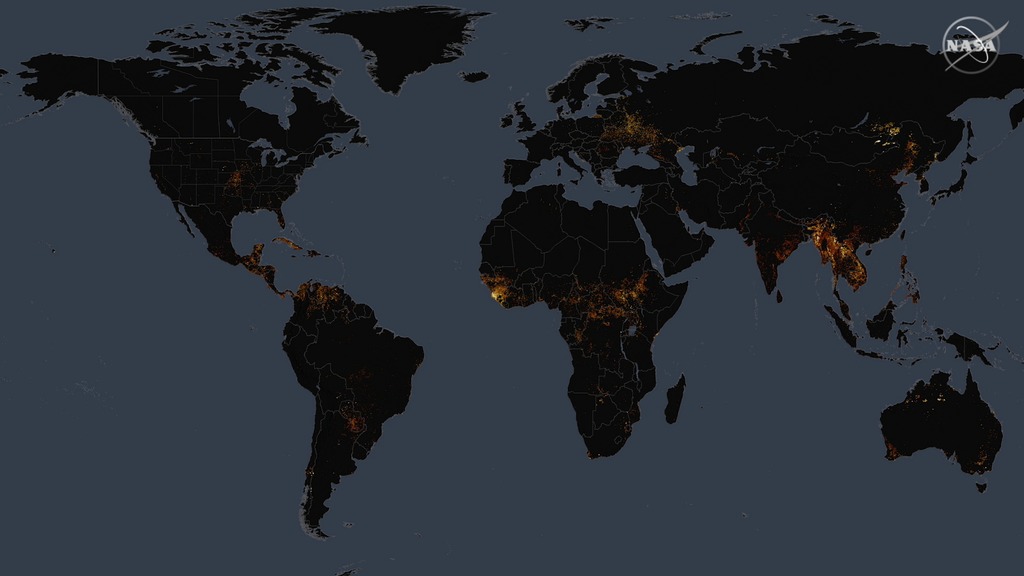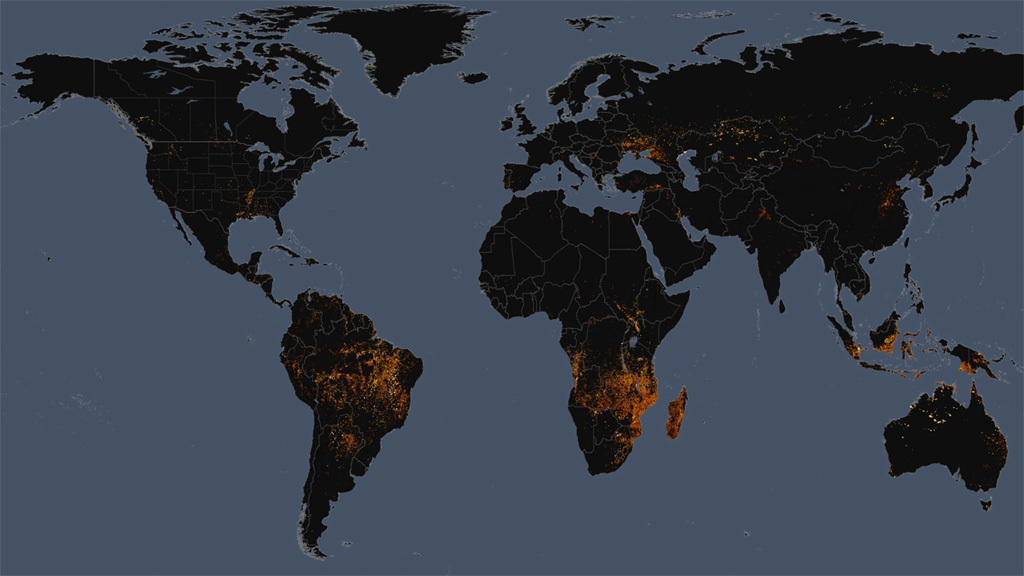Wildfires Live Shot July 2016
B-roll that goes along with the following questions:
Wildfires have been raging in parts of the US this year. Can you show us the view from space?
It’s been an active year around the globe for wildfires. How do fires on the other side of the world affect us?
El Nino has dried out the Amazon this year, making it vulnerable to wildfires. What impacts could this have on the Summer Olympics?
NASA is doing groundbreaking research around the world to study wildfires. What are we learning?
Where can we learn more?
Click for NASA's FIRES webpage.
Find the latest on Twitter @NASAEarth
NASA Tracking Global Wildfires as Summer Heats Up
El Nino Fueling Hotter, Drier Conditions in Western U.S. and the Amazon, Priming Them for Flames
This year’s wildfire season is off to a blazing start. Firefighters in California are battling flames right now north of Los Angeles. Earlier this summer record-breaking temperatures set parts of Alaska and the Southwest on fire. More than 29,000 wildfires have burned over 2.6 million acres in the U.S. this year. The southern Amazon is also expected to see a significant increase in wildfire activity this summer, as El Niño has left the rainforest its driest in 14 years. Smoke from these fires could affect wildlife and agriculture, and potentially impact major events like the 2016 Summer Olympics in Rio de Janeiro, Brazil.
NASA scientists will be available on Friday, July 29 from 6 a.m.-11:30 a.m. EDT to show viewers how NASA is tracking wildfires, and how they’re affecting your viewers. We will also have a Spanish and Portuguese-speaking scientist available.
The expected wildfire surge in the Amazon this summer is the result of El Nino, a warming of waters in the Pacific Ocean that had major impacts on weather across the United States the first half of 2016. While El Nino has officially ended, we’re still feeling effects through increased wildfire activity.
In some parts of the U.S., the fire season is now on average 78 days longer than it was in 1970, according to the U.S. Department of Agriculture. NASA scientists are able to monitor these wildfires better than ever before, providing valuable information that fire managers can use to prepare the public. NASA is also launching field campaigns this summer to learn more about fires and their global impacts.
****To book a window***
Contact: Michelle Handleman/michelle.z.handleman@nasa.gov
Claire Saravia/ claire.g.desaravia@nasa.gov@nasa.gov
HD Satellite Coordinates for AMC9-K23: AMC-9 Ku-band Xp 23 Slot AB| 83.0 ° W Longitude | DL 12151.0 MHz | Horizontal Polarity | QPSK/DVB-S | FEC 3/4 | SR 13.235 Mbps | DR 18.2954 MHz | HD 720p | Format MPEG2 | Chroma Level 4:2:0 | Audio Embedded
Suggested Questions:
1. Wildfires have been raging in parts of the US this year. Can you show us the view from space?
2. It’s been an active year around the globe for wildfires. How do fires on the other side of the world affect us?
3. El Nino has dried out the Amazon this year, making it vulnerable to wildfires. What impacts could this have on the Summer Olympics?
4. NASA is doing groundbreaking research around the world to study wildfires. What are we learning?
5. Where can we learn more?
Live Shot Details:
Location: NASA’s Goddard Space Flight Center/Greenbelt, Maryland
Scientists:
Dr. Doug Morton / NASA Scientist (English and Portuguese)
Dr. Lesley Ott / NASA Scientist
Dr. Robert Field / NASA Scientist
Dr. Eric Brown De Colstoun / NASA Scientist (en Español)
Interview with NASA scientist Dr. Doug Morton. Transcript included
Social media promo with Dr. Doug Morton
Interview with NASA scientist Dr. Lesley Ott
For More Information
See nasa.gov/fires
Credits
Please give credit for this item to:
NASA's Goddard Space Flight Center
-
Producers
- Claire Saravia (NASA/GSFC)
- Michelle Handleman (USRA)
-
Technical support
- Aaron E. Lepsch (ADNET Systems, Inc.)
-
Editor
- Stuart A. Snodgrass (HTSI)
-
Visualizers
- Horace Mitchell (NASA/GSFC)
- Trent L. Schindler (USRA)
- Alex Kekesi (Global Science and Technology, Inc.)
-
Scientists
- Doug C. Morton (NASA/GSFC)
- Lesley Ott (NASA/GSFC)
- Eric C. Brown De Colstoun (NASA/GSFC)
- Robert Field (Columbia University)
-
Support
- Rob Andreoli (Advocates in Manpower Management, Inc.)
- John Caldwell (Advocates in Manpower Management, Inc.)
- Sophia Roberts (USRA)
- Pat Kennedy (HTSI)
Release date
This page was originally published on Monday, July 25, 2016.
This page was last updated on Wednesday, May 3, 2023 at 1:48 PM EDT.

